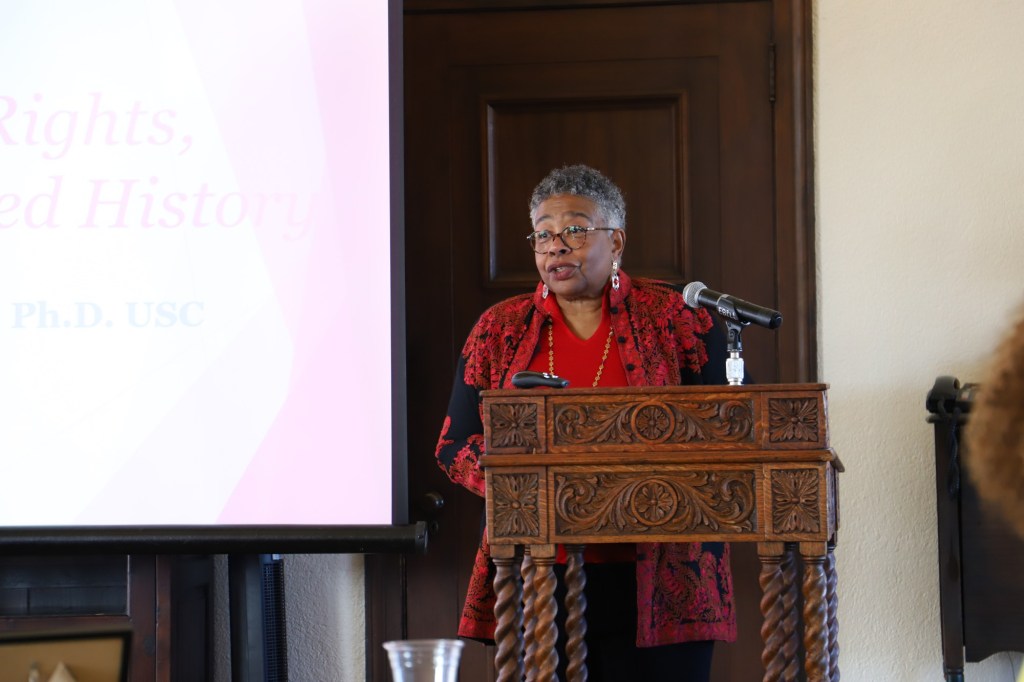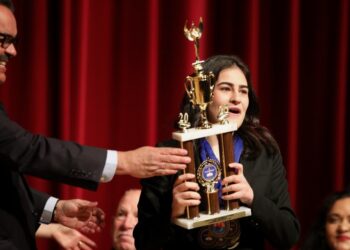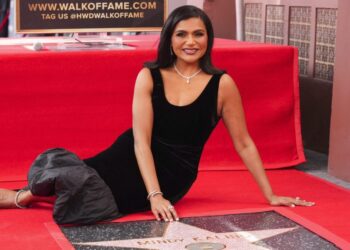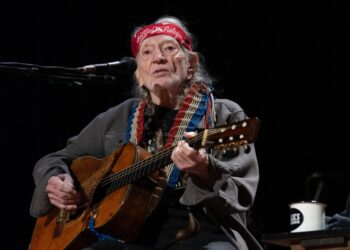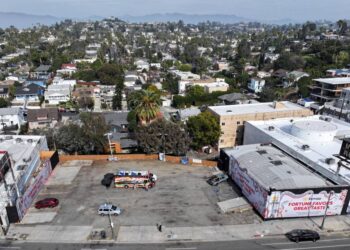With the March primary elections around the corner, as part of its women-centric programming, The Ebell of Los Angeles hosted a discussion on the role Black women played in the fight for voting equality.
At a “coffee talk” hosted at the Mid-Wilshire nonprofit on Wednesday, Feb. 21, USC historian Francille Rusan Wilson outlined the decades-long battle Black women fought between the 1920 passage of the 19th Amendment — which formally granted women the right to vote — and the Voting Rights Act of 1969. The group of around 40 diverse women reflected on the influence of Black suffragettes, especially as Black women continued to face discrimination and prejudice.
“I think the key takeaways are that Black women activists always had more than one thing they were activists about,” Wilson said before her talk. “They were activists about voting rights for women, human rights, social justice, and they were concerned about their race.”
The event included a display of lace outfits worn during the Suffrage Movement, when women sought the right to vote through organized protesting. There were posters of well-known Black women activists from the period, such as Ida B. Wells, Mary Church Terrell and others.
Wilson, an associate professor of American Studies and Ethnicity, is also director of the Black Studies Initiative at USC. This past fall, she was awarded the Woodson Scholars Medallion from the Association of African American Life and History for over a decade of work in her field.
Black women, who fought long for gender and racial equality, were also “outspoken” about supporting Native American, Puerto Rican and Filipino women’s voices, who also didn’t have the right to vote in overseas territories, Wilson said.
In 1848, there were no Black women present at Seneca Falls, the first women’s rights convention. This started a decades-long trend of white women prioritizing their rights throughout history, oftentimes leaving Black women behind to…
Read the full article here

